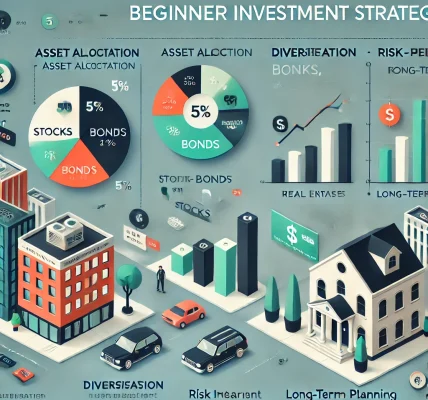Investing has become more accessible than ever, thanks to innovative investment apps that cater to both beginners and experienced investors. With 2025 bringing new technological advancements, choosing the right investment app can significantly impact your financial growth. In this article, we will explore the best investment apps of 2025, their features, pros, and cons to help you make an informed decision.
What to Look for in an Investment App?
Before diving into the list, here are some key factors to consider when selecting an investment app:
- Ease of Use: User-friendly interface for smooth navigation.
- Security: Strong encryption and fraud protection.
- Investment Options: Variety of assets like stocks, ETFs, mutual funds, and cryptocurrencies.
- Fees and Charges: Transparent fee structure with minimal hidden costs.
- Customer Support: Reliable support for resolving queries.
- Regulatory Compliance: Adherence to financial laws and regulations to ensure safety.
Top Investment Apps in 2025
1. Robinhood
Features:
- Commission-free trading on stocks, ETFs, and cryptocurrencies.
- Fractional shares investment.
- Instant deposits and margin trading for premium users.
Pros:
- No commission fees on trades.
- Simple and intuitive interface.
- Great for beginner investors.
Cons:
- Limited research and analysis tools.
- No access to mutual funds or bonds.
2. eToro
Features:
- Social trading with copy-trading functionality.
- Multi-asset platform including stocks, ETFs, and crypto.
- Demo account for practice investing.
Pros:
- Allows beginners to copy expert traders.
- Supports cryptocurrency trading.
- Offers a community-driven approach.
Cons:
- Higher withdrawal and conversion fees.
- Limited tools for deep market analysis.
3. Webull
Features:
- Zero commission on stocks and ETFs.
- Extended trading hours.
- Advanced technical indicators and research tools.
Pros:
- Great for active traders.
- No minimum deposit required.
- Offers paper trading for practice.
Cons:
- Limited customer support options.
- No access to mutual funds.
4. Acorns
Features:
- Automatic round-up investing from daily purchases.
- Pre-built diversified portfolios.
- Retirement account options available.
Pros:
- Perfect for beginners who struggle to save.
- Hands-off approach with automated investing.
- Great for micro-investing.
Cons:
- Monthly subscription fees can add up.
- Limited control over portfolio allocation.
5. Fidelity Investments
Features:
- Zero commission trading on stocks and ETFs.
- Retirement and mutual fund investment options.
- Robo-advisory services for automated portfolio management.
Pros:
- Trusted and well-established platform.
- Strong research tools and educational resources.
- No account minimum required.
Cons:
- Platform can be complex for beginners.
- Certain investment options may have higher fees.
6. Charles Schwab
Features:
- Commission-free stock, ETF, and options trading.
- Personalized financial planning.
- Strong research and analysis tools.
Pros:
- Excellent customer service and support.
- Offers both self-directed and managed portfolios.
- No minimum deposit required.
Cons:
- Some advanced tools can be overwhelming for new users.
- Higher margin interest rates.
7. Stash
Features:
- Helps beginners start investing with as little as $5.
- Offers personalized guidance.
- Allows fractional share investing.
Pros:
- Ideal for new investors.
- Automated portfolio management.
- Educational resources for financial literacy.
Cons:
- Monthly subscription fees.
- Limited research tools compared to competitors.
How to Choose the Right Investment App?
When selecting an investment app, consider your financial goals, level of experience, and preferred investment style. If you are a beginner, an app like Acorns or Stash might be a good fit. For active traders, Webull or Robinhood could be better options. If you prefer a mix of self-directed and managed portfolios, Fidelity or Charles Schwab might be ideal.
Final Thoughts
Investment apps have transformed the way people manage their finances. In 2025, the best apps are those that provide seamless trading experiences, low fees, and a range of investment options. Before choosing an app, make sure it aligns with your financial strategy and risk tolerance.
Disclaimer: This article is for informational purposes only and should not be considered financial advice. Always do your own research and consult a professional before making any investment decisions.




